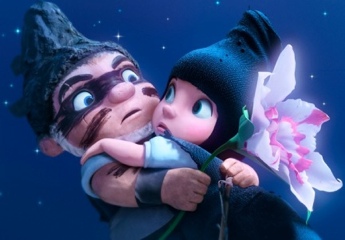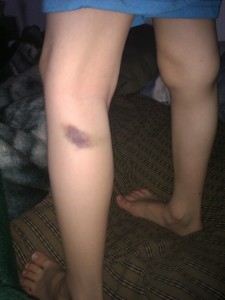This is the original “note” that was posted on Facebook, I included it here in case you don’t have a facebook account or any desire to go to it there.
1. Change the DSM criteria to include Aspergers and tell everyone that the reason autism numbers have exploded is because there are more people with Autism because we are now including Aspergers .The mild forms of autism.
2. Claim it’s genetic even though there are clearly clusters of autism in certain areas. Families were there who had autism explain that they are all related and therefore it’s genetic.
3. Never study identical twins with autism and look at differences.
4. Make up thousands of names of autism but don’t call it autism.
5. Make up reasons for autism. Mom is too old, too young, too fat, too thin, too cold.
6. If you go to vaccine court and claim autism as your vaccine injury, you will lose your case.
7. If you have autism in vaccine court you must never say autism, say encephalopathy instead and if you do say autism you will lose your settlement.
8. If you go to the doctor after a vaccine and say you were injured from it then there must be some other reason for the injury.
9. If the child dies after a vaccine injury make up another name like Suddenly your infant dies. SIDS>
10 If the parent was touching the child when they die from vaccine injury send them to jail.
11. If the parent is persistent that there was a vaccine injury make up a disease so that there is something wrong with the parent. Munchhausen By Proxy or Shaken Baby Syndrome. There must be something wrong with the parent.
12. Side Effects from Vaccine Injury are normal and therefore nothing to worry about.
13. Take a lot of money to study vaccines and autism and use it to buy a house.
14. Make up pandemics once a year and give vaccines that haven’t been tested.
15 If you still get the disease that the vaccine was suppose to protect you from tell them it’s a milder form.
16. Give multiple vaccines at once so that it’s impossible to tell which one was the problem.
17. Never study vaccines together in different combinations.
18. It’s never the doctors fault or the vaccine manufacturers under any circumstances.
19 Never teach doctors about vaccine side effects.
20 . Bribe the parents to get vaccinated.
21.Bribe the doctors to their patients vaccinated.
22. Bribe the schools to get the students vaccinated.
23. Compare vaccinated vs unvaccinated but give the unvaccinated the same amount of mercury.
24. Any doctor that looks at vaccinated children and finds any link whatsoever beat him up and ruin his credibility at all costs.
25. Tell everyone that the rates of autism went down by taking out cases of Aspergers that were added back in when the rates had increased.
I have no interest in adding this person as a friend simply to reply so I’ll reply here, maybe she’ll see it and ignore it just as she would on her profile.
My responses, point by point:
- Dr. Allen Frances, who was the head of the group that created the DSM-IV is the man responsible for adding Aspergers into the diagnostic criteria, after which, he said: “At that point I did an ‘oops,’ ” he says. “This is a complete misunderstanding. It was distressing. Quite distressing.” He inadvertently included a very large group of people into an already growing diagnosed group of disorders called Autism Spectrum Disorder. When you add a large group to an already large group, what happens?
- First, how does this add to the claim that there is less autism in the world? Second, autism is genetic. That doesn’t meant that there isn’t a sub group that is genetically predisposed to having their symptoms triggers or made more severe by environmental factors, such as toxins.
- Actually, they have studied twins that have autism. Read the results here. Hint, they found it’s genetic. Besides, if one twin has autism and the other does not yet they both had the same vaccines, what would you conclude?
- I don’t think they’ve made up any, but some of them have certainly come to light lately, especially with vaccine court cases. However, this claim is actually in reverse as many people were commonly diagnosed with disorders such as schizophrenia when they actually had autism. Many people were misdiagnosed with something else. Now that they are becoming more accurate, there is less schizophrenia and more diagnosed with autism. Meaning more, not less.
- First, how does this add to the claim that there is less autism in the world? Second, I will agree with you that most of these studies are just ridiculous at this point but I would think that it goes to show that there’s more autism, not less.
- First, how does this add to the claim that there is less autism in the world? Second, there’s a reason for that. You have to prove that the child has autism and that the vaccine specifically caused the autism. It has yet to be done.
- I’ll give you this one, but only as it relates to #6. Vaccines do cause injuries and if you can prove it caused or otherwise complicated a pre-existing condition, you may win.
- “Vaccine injury” is pretty vague here… so I’ll assume that you’re specifically talking about Autism. First, this doesn’t relate to the claim that there is less autism since the child may very well have autism. Second, again, there needs to be proof that the vaccine specifically caused the autism.
- SIDS isn’t new and certainly isn’t made up. Also, it happens with or without vaccines. Finally, what does this have to do with autism? If your child dies of SIDS, there’s a very good chance that your child was far too young for anyone to ever know if they had autism or not.
- First, how does this add to the claim that there is less autism in the world? Second, please find me cases where this has happened. Does this happen often?
- First, how does this add to the claim that there is less autism in the world? Second, you think shaken baby syndrome was made up to explain away vaccine injury? Like the last point, most likely your child was far to young to know about autism and finally, I invite you to shake your baby a whole bunch and see if they become vaccine injured.
- First, how does this add to the claim that there is less autism in the world? Second, side effects from vaccine injury? That’s redundant. But nitpicking aside, no one ever said they’re normal. There are rare cases where children become vaccine injured. No one has ever denied it.
- First, how does this add to the claim that there is less autism in the world? Second, I believe Wakefield could have bought a couple of houses with how much he made from lawyers during his vaccine studies. Each side has a doctor on the take. Therefore they cancel each other out.
- First, how does this add to the claim that there is less autism in the world? Second, I’m assuming you are referring to the H1N1… which was one year. Can you name 4 others in the last 5 years?
- First, how does this add to the claim that there is less autism in the world? Second, no one ever said you won’t still contract the disease which you were vaccinated against.
- First, how does this add to the claim that there is less autism in the world? Second, your other points seem to have determined that it’s too many vaccines or mercury or that a vaccine in particular. And yet now it’s a mystery?
- First, how does this add to the claim that there is less autism in the world? Second, they do all the time. Why do you think they give vaccines in certain combinations? Also there are studies, such as this one.
- First, how does this add to the claim that there is less autism in the world? Second, you are clearly unaware of the incredible amounts of malpractice suits and in other points, you reference vaccine courts, where many people are paid through settlements. Clearly it is their fault sometimes.
- First, how does this add to the claim that there is less autism in the world? Second, I’m pretty sure you just made this up.
- First, how does this add to the claim that there is less autism in the world? Second, I’ve never been bribed, I wish I had been. You’d be better off with the blackmail route what with schools not accepting unvaccinated children.
- First, how does this add to the claim that there is less autism in the world? Second, doctors are paid the same whether they vaccinate your children or not.
- First, how does this add to the claim that there is less autism in the world? Second, if the parents are bribed and the doctors are bribed, why bribe the school? And how would that work anyway?
- First, how does this add to the claim that there is less autism in the world? Second, there’s just so much wrong with this. You said it was vaccine overload, then it was combinations, then it was a bunch of vaccines so they can’t tell which one. Now it’s mercury which is out of just about all vaccines… actually, never was in any vaccines. Ethyl-mercury was, which is entirely different from methyl-mercury. Not that anyone would ever “give the unvaccinated the same amount”.
- First, how does this add to the claim that there is less autism in the world? Second, when you say “any doctor”, you mean just one doctor. Which is convenient that you think removing a man’s medical license due to his falsifying his findings and committing fraud is akin to beating him up yet the man that stole money to buy a house was much higher up on your list.. and both somehow add to the claim that there is less autism in the world?
- Are you now saying that #1 was actually true? What would you say it proves if Aspergers is removed and the Autism rates go down? Also, Aspergers wasn’t “taken out”, it just isn’t mentioned. Many with Aspergers would still fit the criteria, they’d just have their diagnosis changed to reflect the new “severity” levels in the DSM-V.
For the most part, this is just a big list of attacks on vaccines and really has very little to do with Autism what so ever. It has even less to do with any such claim that there is less Autism.
For each point that I started with “First, how does this add to the claim that there is less autism in the world?”, there was no relation to Autism what so ever. That’s 19 times out of 25? And that was being generous, I could have included a couple of others.
Again, don’t get me wrong, I’m all for making vaccines safer and greener and getting that risk of vaccine injury/reaction down to 0% or as close as possible. I’m also all for parents looking out for their children’s best interest as well as other children’s as well.
However, seeing notes like these just get under my skin. They don’t anger me, but they do bother me.
It’s sad that it’s gotten to the point that people not only think this way but go out of their way to take a whole bunch of vaccine hatred and aim it at Autism.
Many of the points were made up, assumed and just plain wrong. I even included links with some just to prove it.
But more so than that, my son has Autism. He was NOT vaccine injured. In fact, he never even got so much as a fever from his vaccines. You’d never even know he had any.
When you make these notes and make people hate doctors, hate people preventing deadly illnesses and even make people hate a part of what makes my son who he is… it bothers me.
Yes, some people (children mostly) are vaccine injured. No, vaccines are not 100% safe. That’s all you need to say. Stop dragging me and my child into it.












